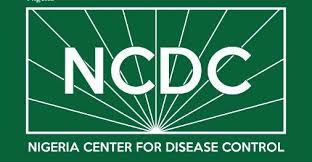The federal government has approved ₦32 billion for Primary Health Care (PHC) centres across Nigeria. This money will be used to fund their work from April to June 2025. The funds are expected to be shared by the end of August 2025 or as soon as the necessary authorities release them.
This decision was announced during the 11th expanded meeting of the Ministerial Oversight Committee on the Basic Health Care Provision Fund (BHCPF), held in Abuja. The meeting was led by the Coordinating Minister of Health and Social Welfare, Professor Muhammad Ali Pate.
At the meeting, the committee confirmed two major approvals to help ensure the BHCPF is carried out smoothly in 2025.
First, the committee approved that ₦32 billion from the first quarter of 2025 be used for health care work in both the first and second quarters of the year. This means ₦16 billion was set aside for each quarter, following the 2020 BHCPF rules. The goal is to keep services running and use the money effectively.
The committee also announced that the new version of the BHCPF Guidelines (called Guidelines 2.0), which were tentatively approved at a previous meeting, have now been fully approved. The updated guidelines will be shared before the end of the third quarter of 2025. These new rules aim to improve how the program is carried out, coordinated, and monitored.
The National Health Insurance Authority (NHIA) said that more than ₦74.8 billion has been given out since the fund began in 2019. As of the second quarter of 2025, over 2.6 million people have signed up for the BHCPF across all 36 states and the Federal Capital Territory (FCT).
The committee also shared updates on the Primary Health Care gateway. They said 752 financial officers have been sent to local areas, covering 98% of Local Government Areas in Nigeria.
So far, 6,512 out of 8,354 PHCs supported by the BHCPF have been visited, showing that 78% of them are being monitored. In the last quarter, 301 PHCs were improved or renovated, bringing the total to 1,163 upgraded centres as of June 2025.
Under the Emergency Medical Treatment program, 25 states have set up emergency medical services. Of these, 13 states and the FCT already have these services running, and 12 more states are getting started.
So far, 2,890 people have received emergency medical care through this program, showing that more people are now getting urgent and life-saving treatment when needed.
The Nigeria Centre for Disease Control (NCDC) said it is working to include disease tracking and health security services in PHCs supported by the BHCPF. This will help spot and respond to outbreaks more quickly in communities.
Finally, the Sector-Wide Approach (SWAp) Secretariat gave updates on better planning and coordination across the health sector. They reported improved teamwork, regular health reviews, and better systems to track progress and hold everyone accountable.


